The 2005 Haditha Massacre
In 2005, the 3rd Battalion ‘Kilo Company’ established a military base in Haditha as part of the US' War Machine.
Around 7:15 a.m. on November 19 (2005) the Battalion’s military truck was struck by an improvised explosive device (IED). The bomb killed one, and injured two other US Marines. “Shoot first and ask questions later” was the direct response of Senior Marine Frank Wuterich who came to lead to what will become the Haditha Massacre, one of the many horrific massacres of Iraqi civilians.
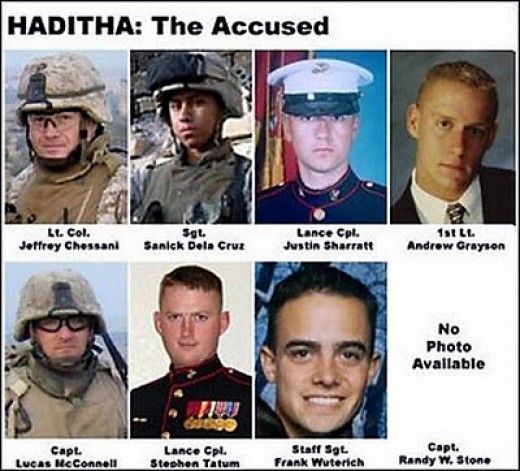
The 9 year old Eman Waleed and her family
In a house close to the military base lived the 9 year old Eman Waleed and her family. The blast was strong enough to shatter all the windows of their home. "When we heard a big noise that woke us up, we did what we always do when there's an explosion: my father goes into his room with the Quran and prays." The rest of the family - her mother, grandfather, grandmother, two brothers, two aunts and two uncles - gathered in the living room.
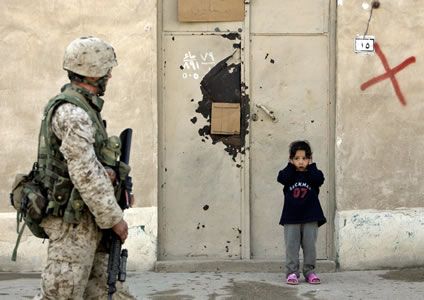
The Marines claimed they came under fire from the direction of the Waleed house immediately after being hit by the IED. A group of Marines headed towards the Waleed house. Eman says she "heard a lot of shooting, so none of us went outside. Besides, it was very early, and we were all wearing our nightclothes."
When the Marines entered the house, they were shouting in English. "First, they went into my father's room, where he was reading the Koran," she said, "and we heard shots." The Marines then entered the living room. "I saw them shoot my grandfather, first in the chest and then in the head. Then they killed my granny.”
The troops started firing toward the corner of the room where she and her younger brother Abdul Rahman, 8, were hiding; the other adults shielded the children from the bullets but died in the process.
Eman’s leg was hit and Abdul Rahman was shot near his shoulder. "We were lying there, bleeding, and it hurt so much. Afterward, some Iraqi soldiers came. They carried us in their arms. I was crying, shouting 'Why did you do this to our family?' And one Iraqi soldier tells me, 'We didn't do it. The Americans did.'"
Moving on to the next house, the Marine broke down the door and threw in a grenade, blowing up a propane tank in the kitchen. The Marines then began firing, killing eight residents—including the father, his wife, the father’s sister, a 2-year-old son and three young daughters.
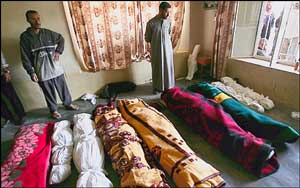
Haditha hospital testimony
The Marines raided the third house, that of Ahmed Ayed. One of Ahmed's five sons, Yousif, who lived in a house next door, said that after hearing a prolonged burst of gunfire from his father's house, he rushed over. The Marines told Yousif that “There's nothing you can do. Don't come closer, or the Americans will kill you too.” The Americans didn't let anybody into the house until 6:30 the next morning. By then all the dead had been zipped into U.S. body bags and taken by Marines to a local hospital morgue. "But we could tell from the blood tracks across the floor what happened," Ayed said "The Americans gathered my four brothers and took them inside my father's bedroom, to a closet. They killed them inside the closet."
Four men were killed in the fourth house, as well as a taxi driver and four teenagers in the street who were ordered out of their car and shot dead.
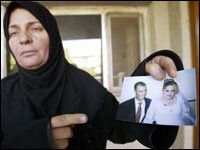
Dr. Wahid, director of the local hospital in Haditha says the Marines brought 24 bodies to his hospital around midnight on Nov. 19. The Marines claimed the victims had been killed by shrapnel from the roadside bomb. "But it was obvious to us that there were no organs slashed by shrapnel," Wahid says. "The bullet wounds were apparent. Most of the victims were shot in the chest and the head from close range."
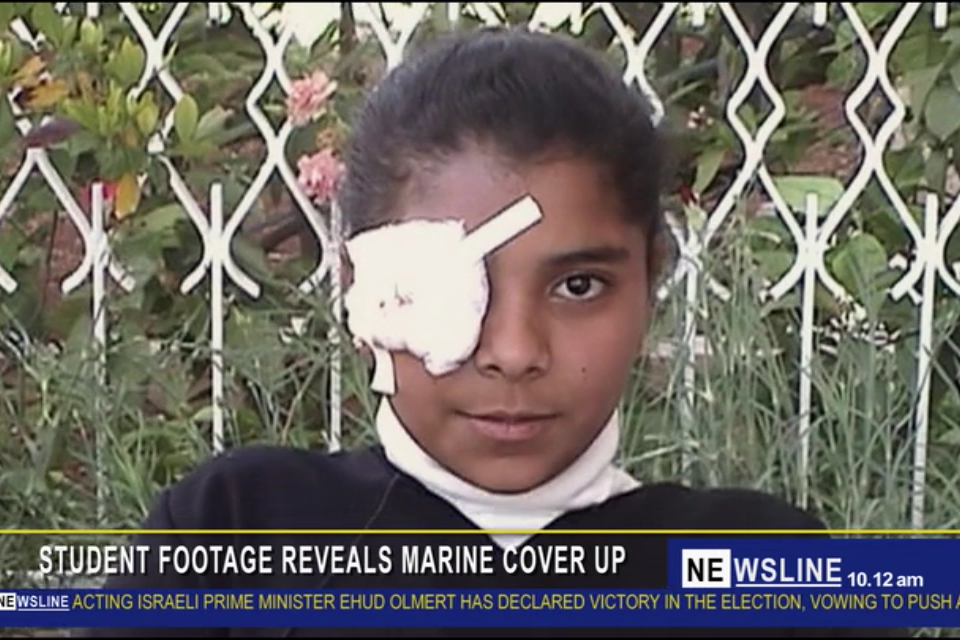
The case accidentally came to light in 2006 due to video material of a Haditha journalism student that reached Western media. In 2013 the eight Marines who were accused in the case all had their charges dismissed by military judges. Wutterich only served a symbolic 90 days in prison while the Iraqis that survived will carry the wound with them for years to come, among them Eman and her brother.
